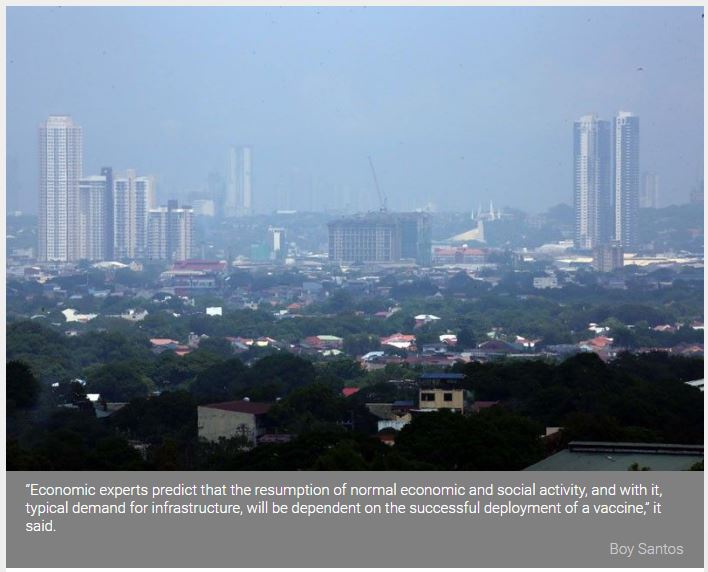Philippines: PPP projects face uncertain future amid pandemic
MANILA, Philippines — Economies involved in public-private partnership should be mindful of the long-term impact to infrastructure projects as the pandemic has made it quite uncertain for PPP moving forward to the new normal.
In its latest report, Manila-based Asian Development Bank (ADB) said PPP projects in Asia and the Pacific will require careful consideration despite PPP being looked at as a key driver of economic recovery.
“The consequences of COVID-19 for the prioritization of future PPP projects are uncertain,” ADB said in its report.
“Economic experts predict that the resumption of normal economic and social activity, and with it, typical demand for infrastructure, will be dependent on the successful deployment of a vaccine,” it said.
Regardless of a vaccine, however, health authorities may look at social distancing measures more broadly, which would affect the density of infrastructure usage.
Developing infrastructure remains a critical component in sustaining, and now regaining, economic growth in the Philippines, alongside the betterment of living standards and addressing hinders to trade and investment, both locally and internationally.
As the pandemic restricted movements of people, goods, and services, it delayed the progress of several big-ticket infrastructure programs, particularly airports and tollways projects.
PPP Center executive director Ferdinand Pecson said a lot of PPP projects would help in economic recovery and these should start moving, while other proposals should be assessed as well.
“There are projects submitted to the ICC (Investment Coordination Committee) for approval. We are just in March, so there is sufficient time to process,” Pecson said in a mobile exchange.
“There are also solicited projects whose feasibility studies have either started or will start this year. These could be submitted for approval later this year,” he said.
ADB said impacts of the pandemic would likely include decreasing PPP project value and volume, increasing PPP project risks, and public perception that value for money may not be fully realized on the PPP projects.
In particular, PPP projects that have yet to start operations may face reduction in labor-intensive activities as social distancing measures will restrict the number of workers that can be available on-site at any given time.
And while restrictions continue to be eased, governments, including the Philippines, remain under pressure to revisit their demand and supply chains.
“While supply chains vary across PPP projects, the impact is more acute for international than domestic supply chains because of drops in international trade volumes, shipping disruptions, and delays caused by labor restrictions and inspections,” ADB said.
The multilateral bank also urged countries to consider the substantial reduction in toll road and mass transit patronage as more and more people opt to work from home. Even leisure travel is not expected to resume in the short-term.
“This has left airports and travel terminals largely underutilized, which deny those projects their usual source of air-side revenue such as gate and landing fees and land-side revenue such as retail,” ADB said.
As a recommendation, the ADB said governments and PPP project participants should be mindful of their respective short, medium, and long-term outlook toward the programs.
“In the short to medium term, responsiveness and agility will be key to adapting existing projects to ongoing changes. In the medium to long term, enhanced and broader policy and administrative frameworks should sustainably support coordination and risk allocation,” it said.
Further, governments should also consider prioritizing smaller-scale projects if they want to speed up economic recovery amid the pandemic.
Source: https://www.philstar.com/business/2021/03/03/2081485/ppp-projects-face-uncertain-future-amid-pandemic


 English
English




